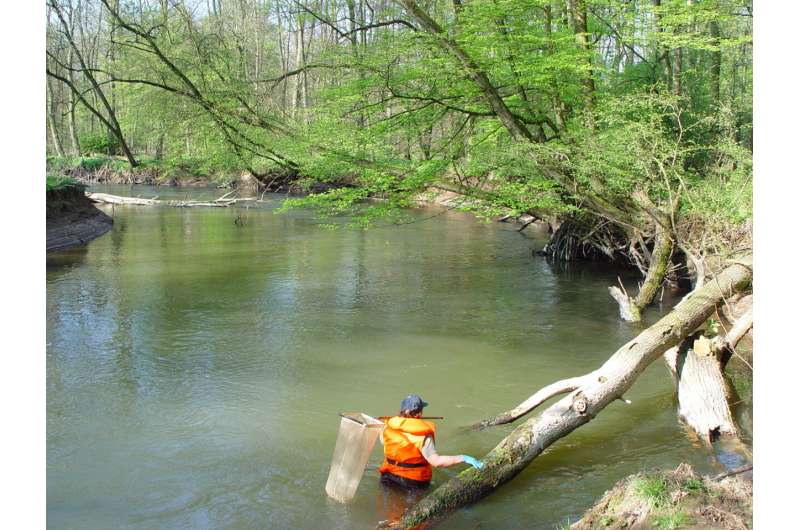This article has been reviewed according to Science X's editorial process and policies. Editors have highlighted the following attributes while ensuring the content's credibility:
fact-checked
peer-reviewed publication
trusted source
proofread
Recovery of biodiversity in rivers across Europe is slowing down, study finds

The study, led by the Senckenberg Institute and published in the journal Nature, examined invertebrate biodiversity in river systems across 22 European countries and found that additional measures are needed to revive the recovery of freshwater biodiversity, which is threatened by pollution, invasive species, and climate change.
"The improvement of freshwater biodiversity in Europe is a great achievement, but we cannot afford to be complacent," said Professor Iwan Jones, Head of the River Communities Group at the School of Biological and Chemical Sciences at Queen Mary University of London and one of the authors of the study. "Our research shows that we need to redouble our efforts to protect these vital ecosystems. We need to act now to further reduce pollution, prevent invasive species from spreading, and help our river systems to cope with climate change."
Queen Mary's Professor Jones and Dr. John Murphy, along with their co-authors, advocate for reducing the input of fertilizers and pesticides from agricultural land, connecting floodplains to reduce destructive flooding, and adapting river systems to future climatic and hydrological conditions. The study also calls for substantial investments to expand wastewater networks and improve wastewater treatment plants to prevent overflows during heavy rainfall and more effectively remove micropollutants, nutrients, salts, and other pollutants from freshwater systems.
The study's findings come as the European Union prepares to launch its new Biodiversity Strategy for 2030, which aims to halt the loss of biodiversity and restore damaged ecosystems. The strategy will be a key part of the EU's Green Deal, which aims to make Europe climate-neutral by 2050. The UK's 25 Year Environment Plan has a similar ambition, to improve waterways such that they are close to their natural state.
"We hope that our research will provide valuable insights for policymakers as they develop the new Biodiversity Strategy for 2030," said Professor Jones. "We need ambitious targets and concrete actions to protect our freshwater ecosystems and ensure that they can continue to provide vital services for people and nature."
More information: Peter Haase et al, The recovery of European freshwater biodiversity has come to a halt, Nature (2023). DOI: 10.1038/s41586-023-06400-1
Journal information: Nature
Provided by Queen Mary, University of London


















